 W
WWithdrawal from the European Union is the legal and political process whereby an EU member state ceases to be a member of the Union. Article 50 of the Treaty on European Union (TEU) states that "Any Member State may decide to withdraw from the Union in accordance with its own constitutional requirements".
 W
WAn independence referendum was held in French Algeria on 1 July 1962. It followed French approval of the Évian Accords in an April referendum. Voters were asked whether Algeria should become an independent state, co-operating with France; 99.72% voted in favour with a voter turnout of 91.88%.
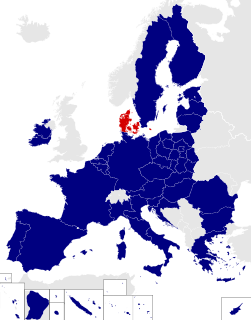 W
WDanish withdrawal from the European Union is the hypothesis that Denmark might leave the European Union (EU). Withdrawal is advocated by Danish Eurosceptics and opposed by Danish Pro-Europeanists: each of these groups spans the left–right political spectrum. The immediate objective of the Danish Eurosceptics is to have a referendum on their proposal. The proposal is supported by just one of the political parties represented in the Danish Parliament, which has less than 9% of the total seats.
 W
WDutch withdrawal from the European Union refers to the hypothesis that the Netherlands might withdraw from the European Union. The most recent opinion poll on the subject, in June 2020, showed a 3:1 majority against withdrawal.
 W
WEuroscepticism, also spelled as Euroskepticism or EU-scepticism, means criticism of the European Union (EU) and European integration. It ranges from those who oppose some EU institutions and policies, and seek reform, to those who oppose EU membership and see the EU as unreformable. The opposite of Euroscepticism is known as pro-Europeanism, or European Unionism.
 W
WEuroscepticism is a minority view in Ireland. Opinion polls held in the country between 2016 and 2019 indicate between 70% and 90% support for continued membership of the European Union (EU).
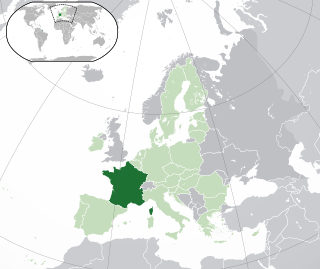 W
WFrexit is the hypothetical French withdrawal from the European Union (EU). The term is similar to Brexit, which denotes the UK leaving the EU. The term was mostly used during the campaign leading to the French presidential election of 2017.
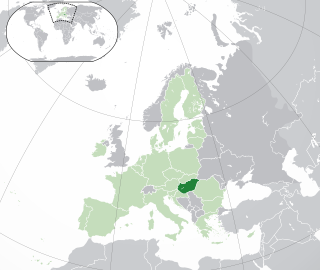 W
WIt has been proposed that Hungary withdraw from the European Union (EU), which is sometimes referred to as Huxit, Huexit, Hunxit and Hunexit. In Hungary, member of the EU since 2004, right-wing populist politicians have tried to create a comparison between the EU and the former Soviet Union (USSR), seen as a past oppressor in the country. Furthermore, democratic backsliding is a phenomenon present in Hungary. For all of this, it has been suggested that Hungary should leave the EU.
 W
WIn 2016, the impact of Brexit on the European Union (EU) was expected to result in social and economic changes to the Union, but also longer term political and institutional shifts. The extent of these effects remain somewhat speculative until the precise terms of the United Kingdom's post-Brexit relationship with the EU becomes clear. With an end to British participation in the EU's policies on freedom of movement of goods, persons, services, and capital, and the European Union Customs Union, as well as sharing criminal intelligence and other matters, there is a clear impact with consequences for both institutions.
 W
WItalexit, whose complete name is No Europe for Italy – Italexit with Paragone, is a nationalist and Eurosceptic political party in Italy. Its founder and leader is Gianluigi Paragone, an Italian senator and former TV journalist who drew inspiration for his movement from Nigel Farage's Brexit Party, with the aim of bringing Italy out of the European Union.
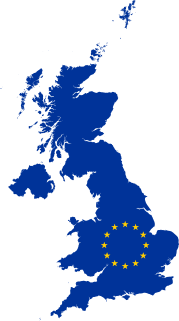 W
WParliamentary votes on Brexit, sometimes referred to as "meaningful votes", were the parliamentary votes under the terms of Section 13 of the United Kingdom's European Union (Withdrawal) Act 2018, which requires the government of the United Kingdom to bring forward an amendable parliamentary motion at the end of the Article 50 negotiations between the government and the European Union in order to ratify the Brexit withdrawal agreement.
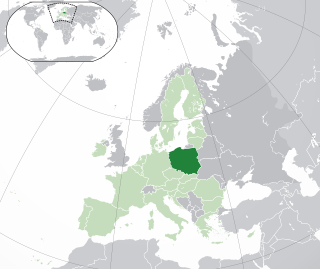 W
WA Polish withdrawal from the European Union, or Polexit, is the name given to a hypothetical Polish withdrawal from the European Union. The term was coined after Brexit, the process of Britain's withdrawal from the EU which took place between 2016-2020.
 W
WThe United Kingdom European Communities membership referendum was a public vote that took place on 5 June 1975, on whether the United Kingdom should remain a member of the European Communities which was principally the European Economic Community as it was known at the time. At the time the UK had already been a member of the EC for two and a half years since joining back on 1 January 1973 and was the first ever national referendum of its kind to be held in the country.
 W
WIt has been proposed that Romania withdraw from the European Union (EU), this sometimes being known as Roexit or Romexit. Romania, which joined the EU in 2007, is usually regarded as different from its other Eastern European neighbours members of the organization, where illiberal and populist politics dominate.
 W
WArticle 7 of the Treaty on European Union is a procedure in the treaties of the European Union (EU) to suspend certain rights from a member state. While rights can be suspended, there is no mechanism to expel a member.
 W
WAfter being a part of the European Communities (EC) for twelve years, Greenland withdrew in 1985. It had joined the EC in 1973 as a county of Denmark, even though a majority in Greenland was against joining. In a consultative referendum in 1982, 53% of the electorate of Greenland voted to withdraw from the Communities. This latter referendum became possible after the introduction of home rule in Greenland in 1979. Following its withdrawal, which was regulated through the Greenland Treaty, the relationship between Greenland and the EC was partly settled through an association under Overseas Countries and territories (OCT) status. In recent years, the Greenlandish withdrawal from the European Communities has marginally been referred to as "Greenxit".